7 unsung Google apps and tools that we love (and you should use too)
Think you know Google apps? You might have missed a few
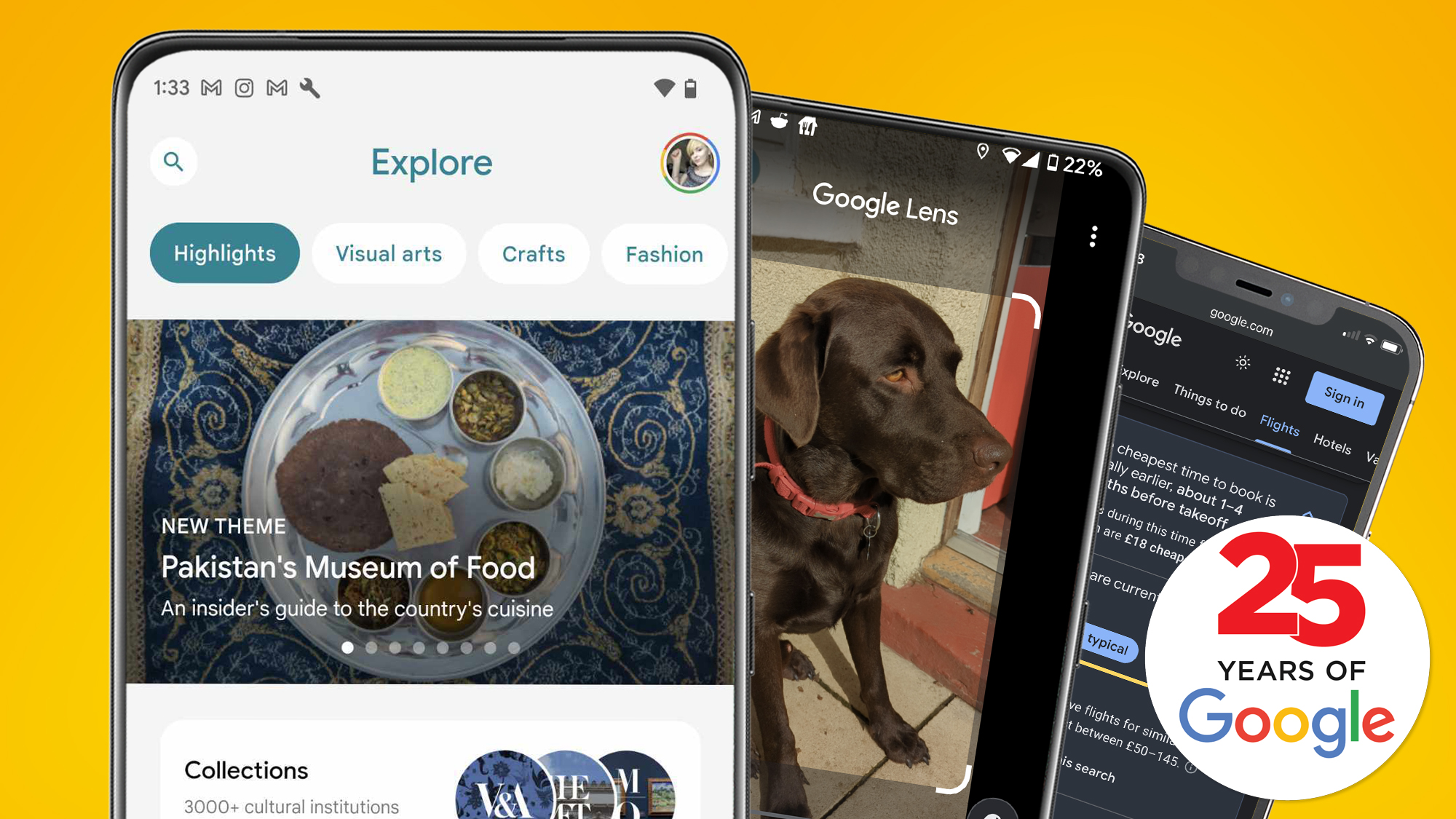
Sign up for breaking news, reviews, opinion, top tech deals, and more.
You are now subscribed
Your newsletter sign-up was successful
Most of us use Search reflexively, pop into our Gmail fifty times a day, and fall back into the comfortable arms of Google Maps when we're lost. But Google has tons of smaller apps and tools that are equally useful in their own way – so we've gathered our favorite lesser-known treats here to help you discover some new favorites (and also hopefully protect them from the Google graveyard).
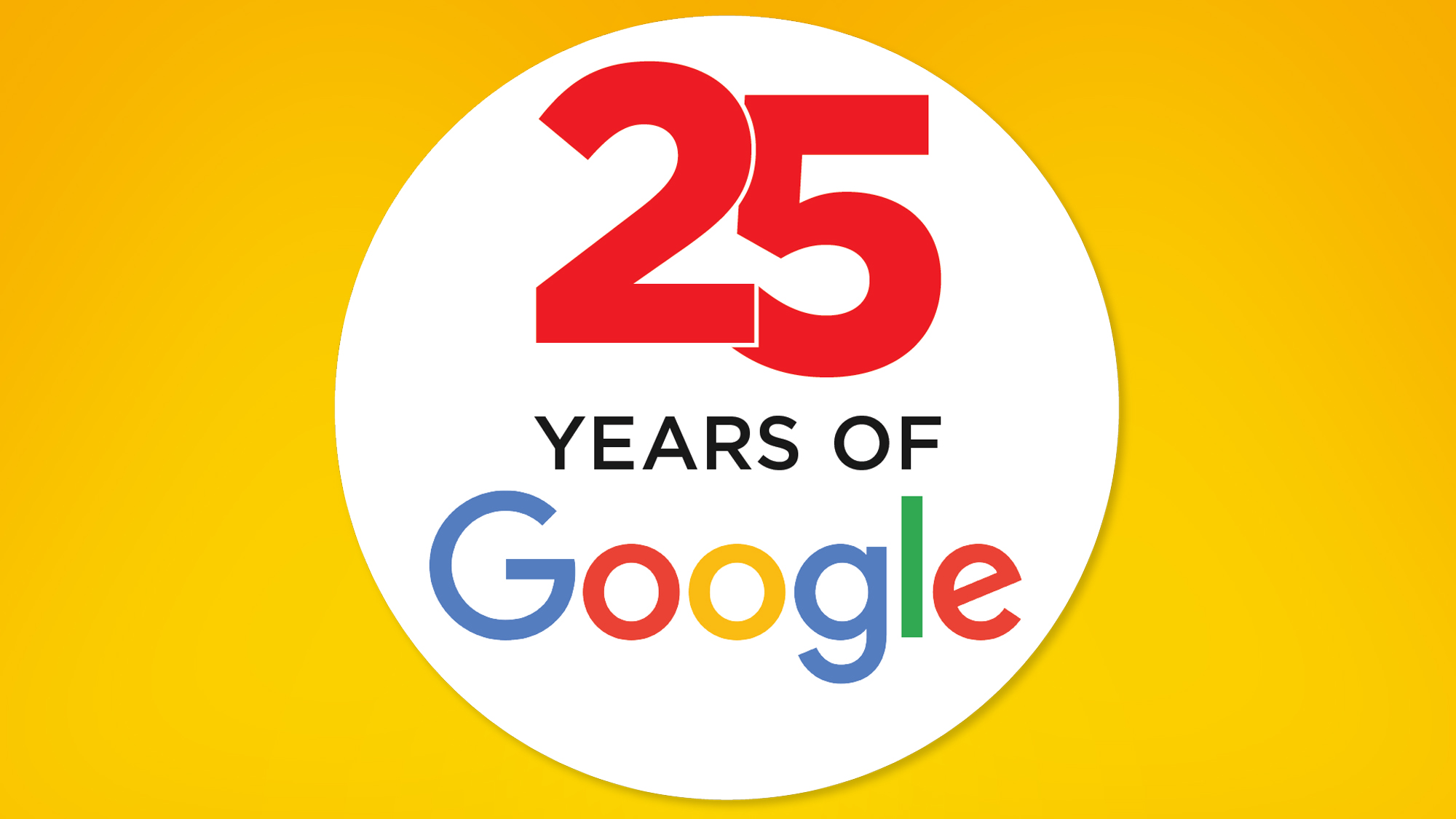
This is the part of a series of TechRadar articles marking and celebrating Google's 25th birthday. Read them all here.
Yes, Google's penchant for experiments over the past 25 years – its official 25th birthday is on September 27 – has been a double-edged sword. It rustles up new apps and services like some sort of digital magician, only to make them disappear and leave us crying like children over what's been ruthlessly taken away.
But for now, the Google apps and services below are still going strong – and they're all ones that the TechRadar team likes a lot. You may not, for example, have discovered the stress-lowering power of Family Link, the cerebral wonders of Google Scholar, or the sheer joy that is the Arts & Culture app.
If you haven't, then allow us to explain why you should – and also why we need to put a protective ring-fence around them all to save them from a future visit to Google's guillotine...
1. Google Arts & Culture app
- Best for: the culturally curious
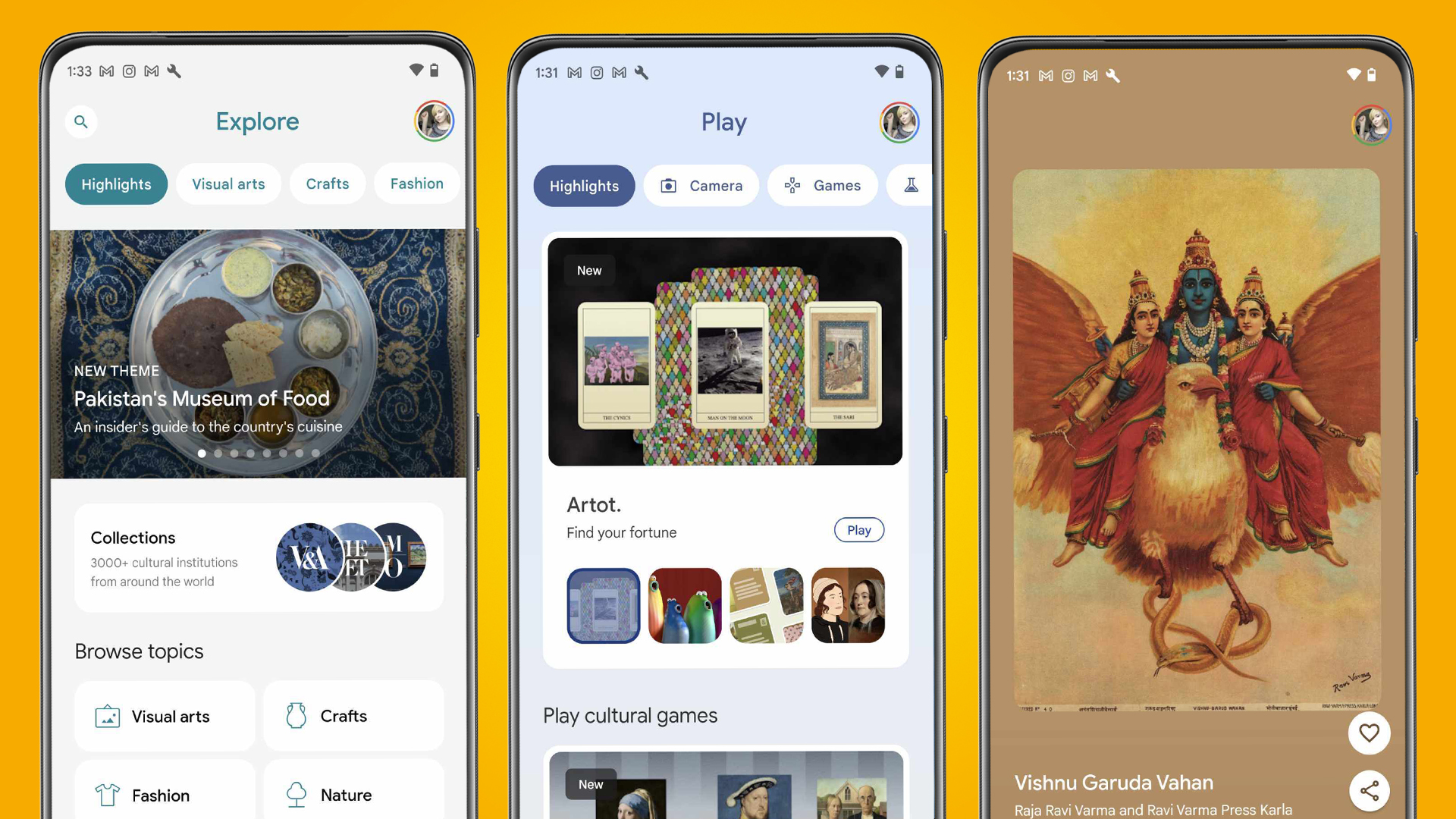
For me, the Google Arts & Culture app is a glorious rabbit hole that leads to hundreds more rabbit holes. It’s a top recommendation from me if you want to inject some art and culture to stir your thoughts, perhaps over morning coffee or during a work break. Maybe you’re brainstorming ideas and are looking for inspiration. You even get cute little badges the more you explore the site.
Google describes it as its effort to make art and culture from all around the world and from all sorts of time periods available to anyone, anywhere. On the home page, you’ll be met with a whole array of activities you can try – whether it’s just reading a featured article or trying a game. You can dive into an art collection and even check out collections that are near you so you can go in person.
You can also visit some museums virtually, including beautifully and meticulously captured 360-degree views, and check out their collections that way, using tech similar to Google Street View. If you have a VR headset, there are even augmented reality (AR) experiences you can try. If that's not enough, it's also worth following the Google's official Arts & Culture blog – recent stories include a Leonardo da Vinci feature and four new digital experiments from artists that you can try for yourself.
Sign up for breaking news, reviews, opinion, top tech deals, and more.
- Kristina Terech (Computing Writer)
2. Google Family Link
- Best for: busy parents
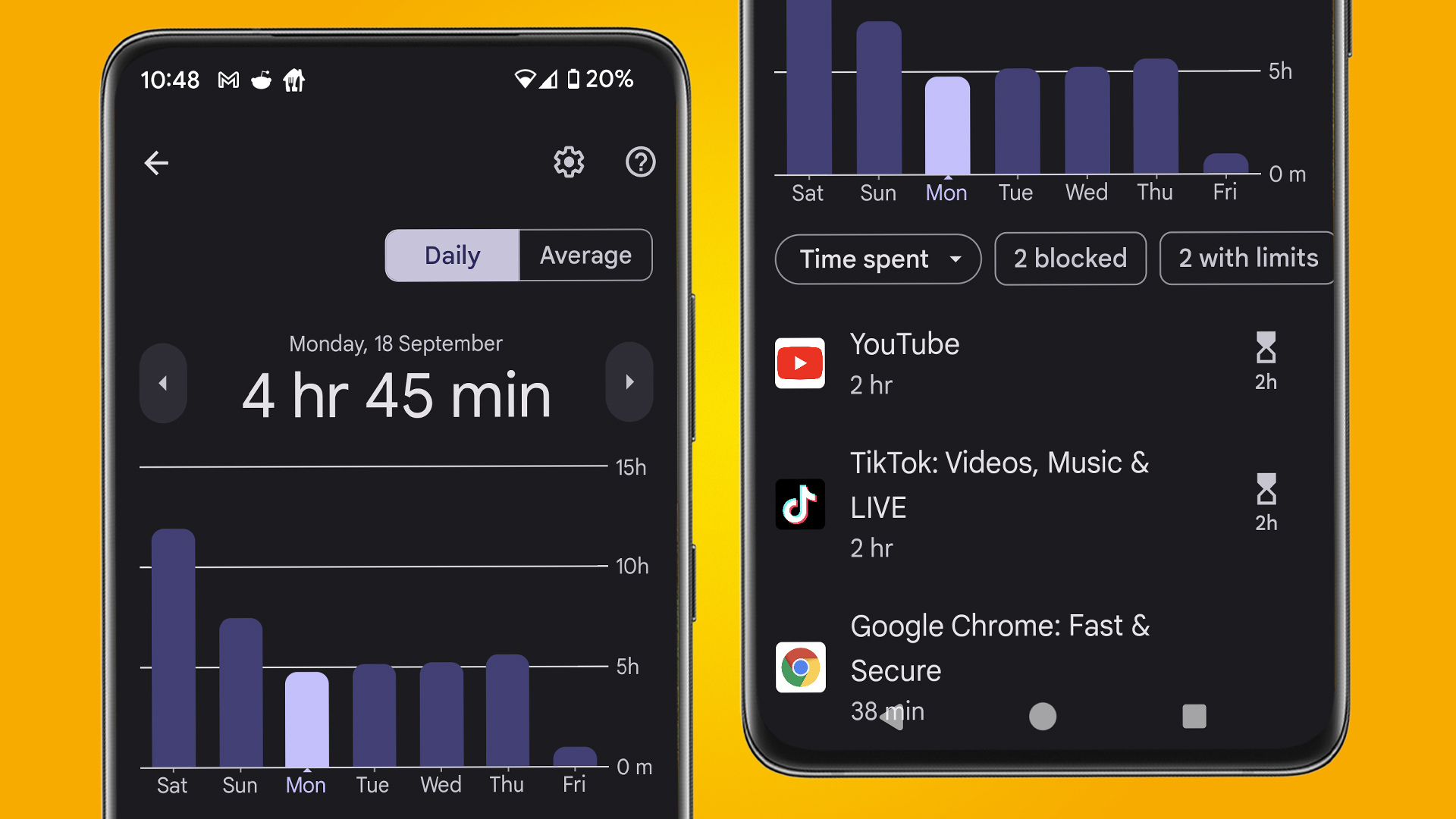
I wouldn’t say Google Family Link was a better parent than me or my partner, but it was a close-run thing for a time. For the uninitiated, Family Link lets you remotely manage your children’s devices; you can set screen time limits, block access to apps and websites, and generally control what they can get up to online. It’s aimed at under-13s, though you can use it for teens too (just be prepared for arguments if you go down that route).
And it works brilliantly, taking away some of the stress of parenting in the digital age. Now, don’t get me wrong – I’m not a fan of restricting everything my kids do online, as it’s important that they learn about the big wide world web. But being able to set limits for individual apps has been a massive help as my daughters have entered their early teenage years and have finally been allowed on TikTok and Snapchat; without it, I suspect they’d both spend roughly 20 hours a day scrolling through their feeds, rather than the two hours they’re given.
I also love the Location feature, which shows me where they are – or where their phones are, but that’s always the same thing – on a map; great for peace of mind when they’re out with friends. Surprisingly, my kids like Family Link, too – the internet can be a scary place for kids, but they know it will prevent them from stumbling into the worst corners of the web. They can wait until they’re adults for that.
- Marc McLaren, UK Editor in Chief
3. Google Keep
- Best for: getting a second brain
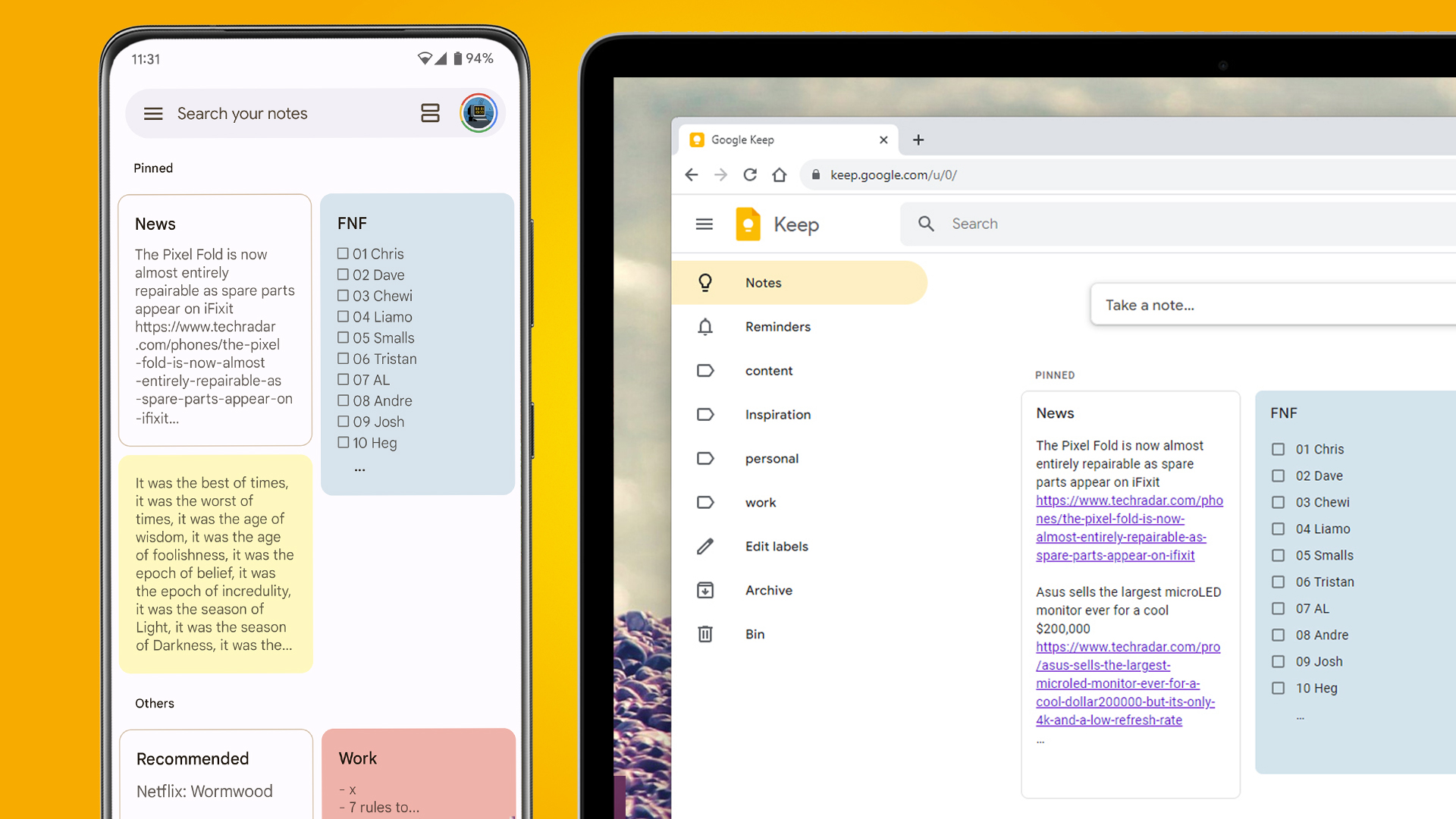
Here are some of the bits I've got in Google Keep: films to watch, song lyrics I like, 5-a-side football attendances, shopping lists, expense tallies, press contacts, my National Insurance number... and that's just a sample.
The appeal of all these virtual Post-it notes lies in just how many different ways you can use them – and as well as text you can store hand-written scribbles and images as well.
Everything loads up in a flash, syncs seamlessly across any device and the web, and search works perfectly, too – even if you can only remember a fragment of what you've written. You can label notes, attach reminders to them, collaborate on them with other people, and convert them into documents with a click.
- David Nield, freelance contributor
4. Google Scholar
- Best for: backing up your opinions
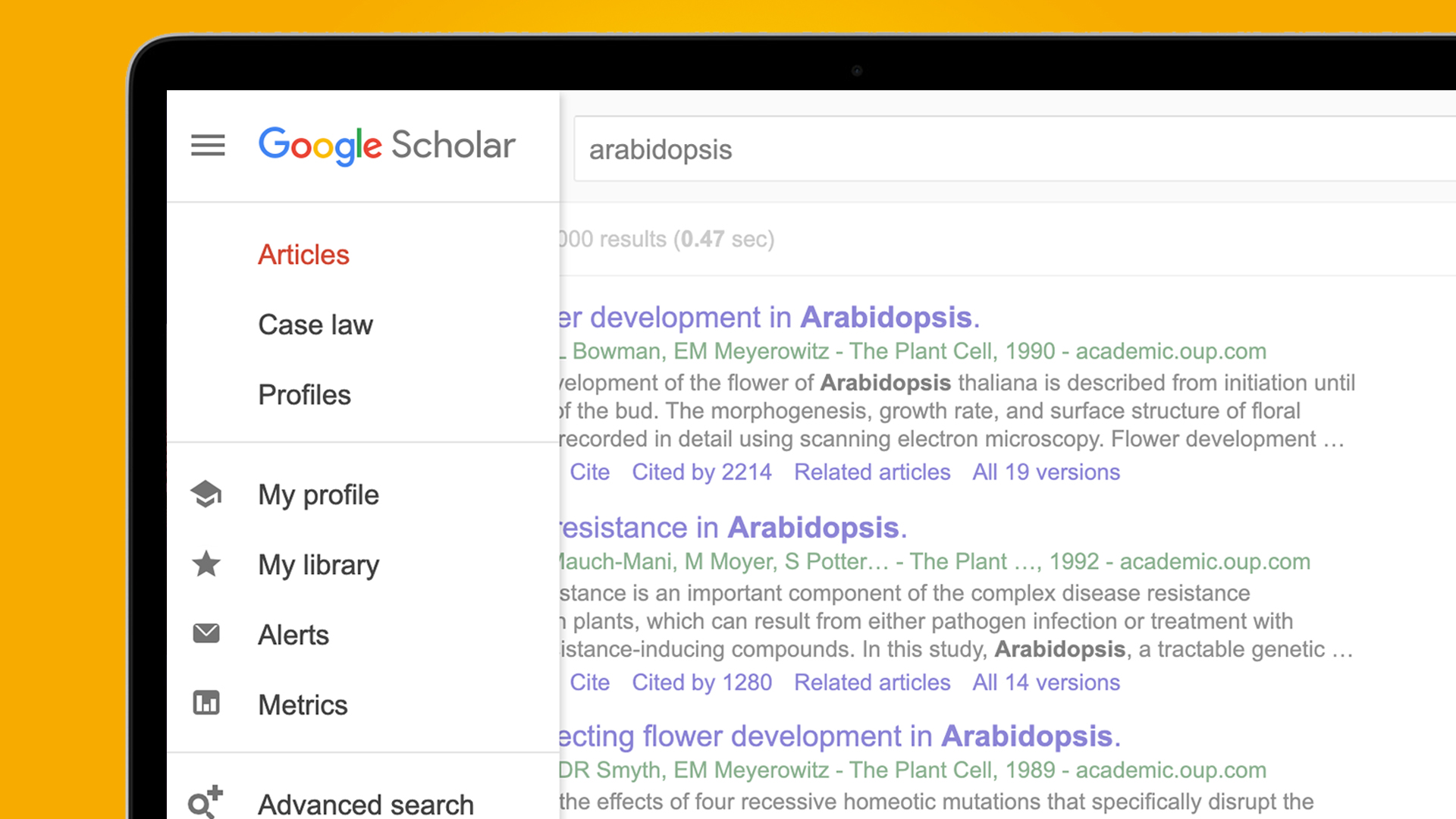
Google Scholar is a niche, but useful little tool that’s saved me countless hours of wading through dry, dull academic archives.
Scholar is a subset of Google Search focused on trawling through databases full of academic papers, makes finding peer-reviewed research on any given topic an absolute doddle. It’s very useful for students, I can imagine, but unlike most of its users, I didn’t even touch it until I entered the working world.
Whenever I write about health or wellness, I find myself needing to consult a bit of science to ensure any point I’m making is backed up with research papers. I’ve been using it for nearly a decade, looking up papers on everything from VO2 Max to VR’s effect on our eyes.
- Matt Evans, Fitness, Wellness & Wearables Editor
5. Google Flights
- Best for: timing your holidays to perfection
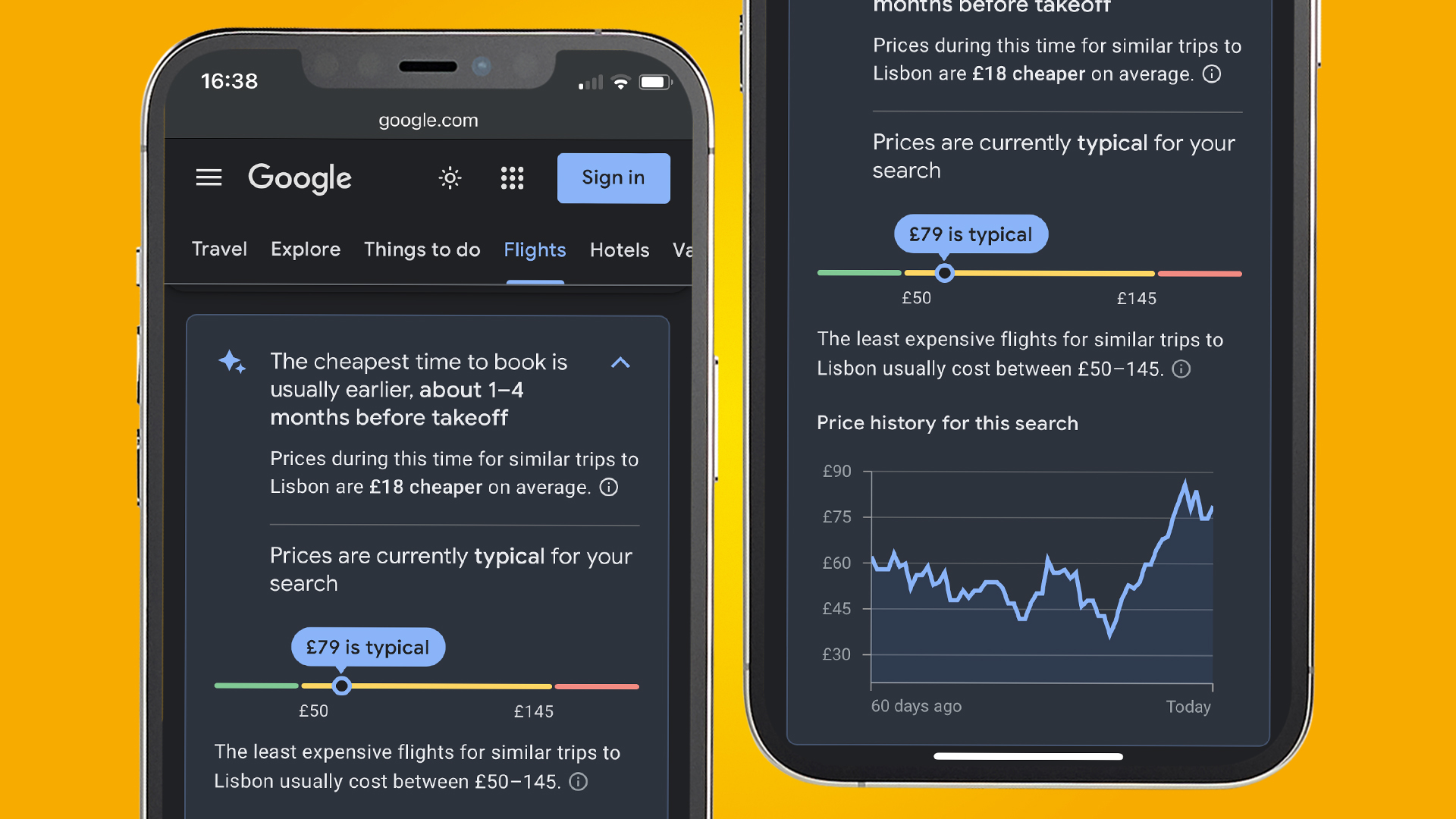
I've only recently started considering flying abroad again after, well, we all know why. And while I used to rely on comparison engines like Kayak to check prices, I'm now fully on board with Google Flights (with a dash of Chrome extensions like Travel Arrow, which went viral on TikTok recently).
Flights has always been useful for basic price comparisons, but it's stepped up its game recently with an improved Insights tab. Now when you search for flights, you can tap on a blue card below the search box to see some handy data on whether your quoted prices are typical, plus a graph of how the prices have fluctuated over the past couple of months.
Clearly, my lack of planning for a Lisbon trip (above) has cost me dearly, but at least I know the prices aren't extortionate compared to previous years. As always, it's worth going directly to the top airlines in your results to see if there are any special offers there, and comparing the comparison sites with the likes of Travel Arrow.
Google Flights' handy price tracking feature also works a bit like Google Alerts (see below) for holiday bargain hunters. Use it enough and you'll start to become known as the flights nerd among friends and family – for example, did you know that this year the best time to book Christmas flights is 71 days before departure?
- Mark Wilson, Senior news editor
6. Google Alerts
- Best for: staying in the know
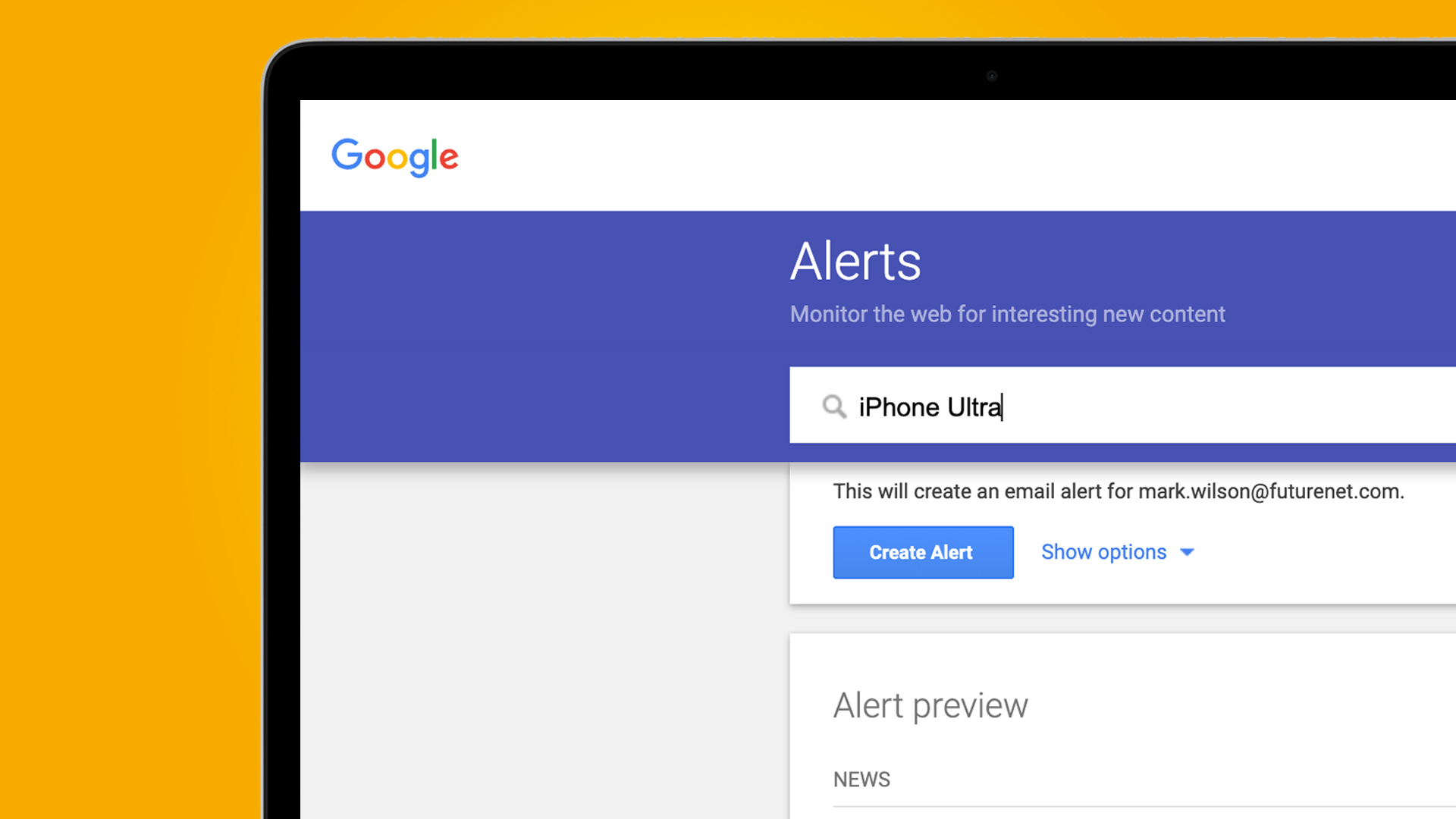
One of Google's lesser-known products, but one I use all the time, is Alerts. As its name suggests, it pings you an email when a keyword or set of keywords appears online.
It offers plenty of ways to tweak the delivery (frequency, language, location etc). It’s one of those services that ticks in the background and therefore doesn’t get the sort of slick treatment that Google usually applies to more visible ones.
You can use advanced search operators like on Google Search to filter exactly what sort of content you can get and there’s no limits to the number of alerts you can set either. Sadly, it doesn’t work with YouTube and you still can’t get Bard, Google’s AI butler, to set one up for you.
Still, like the now-defunct Google RSS Reader, this one has grown on me. Don’t be surprised, though, if Google decides to shun it at some point, consigning it to join the nearly 300 projects that Google has terminated to date.
- Desire Athow (Managing Editor, TechRadar Pro)
7. Google Lens
- Best for: searching the real world
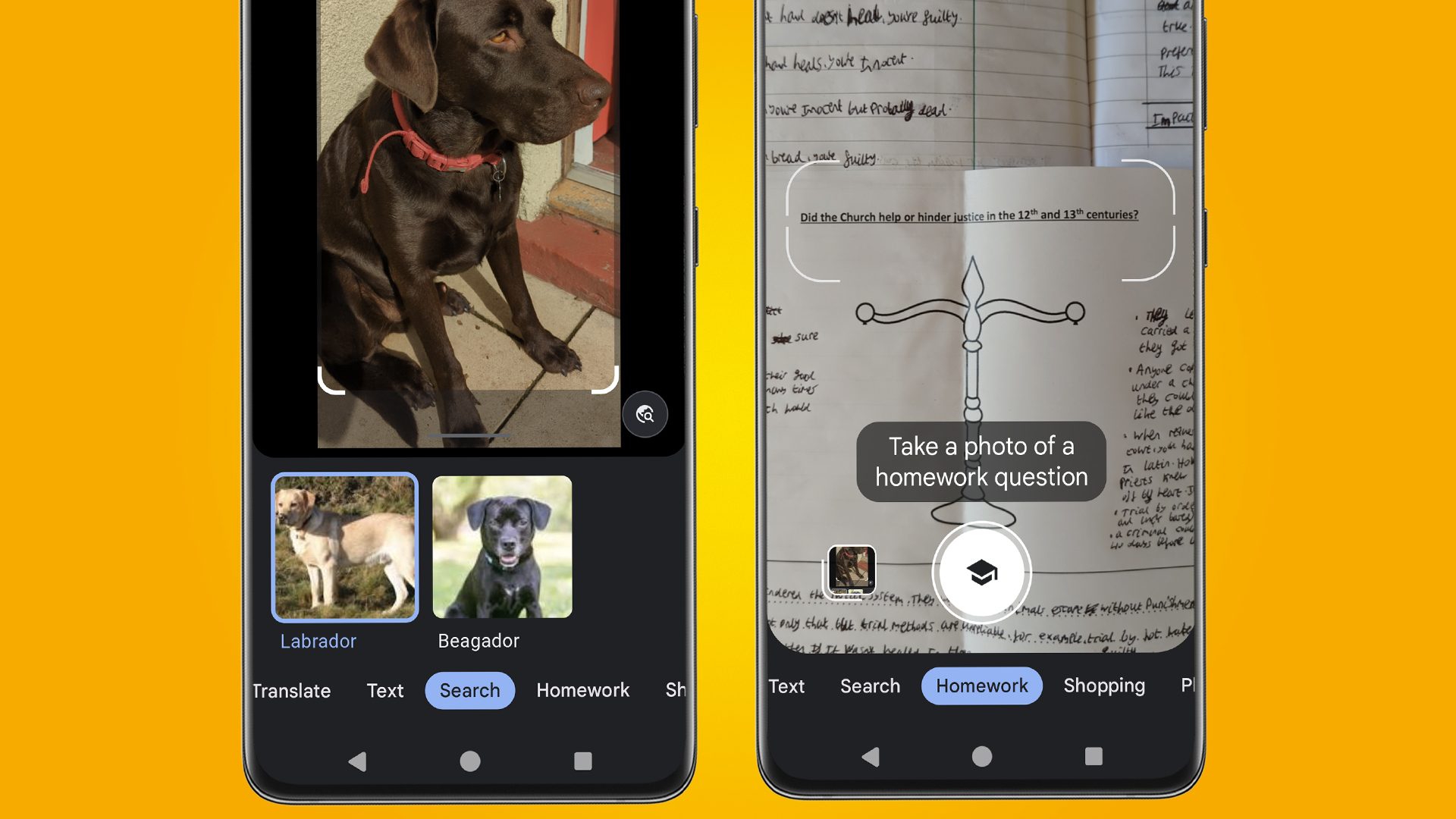
Before ChatGPT and Bard… there was Google Lens. Well, sort of. No, it’s not a text-based AI tool like they are, but it was one of the first truly impressive demonstrations of machine learning that I was exposed to.
Lens is a hard thing to pin down. It’s essentially a visual search tool, but that doesn’t come close to describing everything it can do. Want to know what that plant over there is? Snap a photo with Lens and it will tell you it’s a juniper or whatever. On holiday in Italy and struggling with the menu? Use Lens and it will live-translate the text for you.
Plus, it’s improved over time: you can now take a photo of text and it will copy it to the clipboard, or snap a barcode and have it return shopping links, or photograph buildings and receive information about them. There’s even a relatively new Homework feature, which will answer questions; I’m not showing this to my kids.
Lens is built into my Pixel 6’s Camera app (it’s also available via the Google Lens app for Android and iOS) and has become just another Google tool that I rarely marvel at as I once did. But then that’s part of its genius. Using it is so simple and seamless that it’s become commonplace for me, despite being a genuinely innovative tool that I’d have dismissed as a work of science-fiction a decade ago. Thanks, Google!
- Marc McLaren, UK Editor in Chief
You might also like

Mark is TechRadar's Senior news editor. Having worked in tech journalism for a ludicrous 17 years, Mark is now attempting to break the world record for the number of camera bags hoarded by one person. He was previously Cameras Editor at both TechRadar and Trusted Reviews, Acting editor on Stuff.tv, as well as Features editor and Reviews editor on Stuff magazine. As a freelancer, he's contributed to titles including The Sunday Times, FourFourTwo and Arena. And in a former life, he also won The Daily Telegraph's Young Sportswriter of the Year. But that was before he discovered the strange joys of getting up at 4am for a photo shoot in London's Square Mile.
- Marc McLarenGlobal Editor in Chief
- David NieldFreelance Contributor
- Kristina TerechComputing Writer
- Matt EvansSenior Fitness & Wearables Editor
- Desire AthowManaging Editor, TechRadar Pro